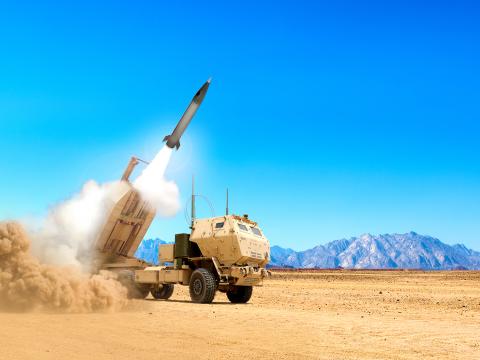Making the Space Force A Cyber Force
Among other things, the U.S. Space Force needs industry assistance in providing information technology (IT) functions, including network services. It needs the commercialization of network service so that it can focus on creating “world class” cyber squadrons, said Brig. Gen. Devin Pepper, USSF, deputy commanding general, Operations, Space Operations Command. The service will also grow its cyber warriors and expand more cybersecurity into its missions and operations. Gen. Pepper, whose role as an authorizing official for all space networks keeps him in the cybersecurity business, spoke at AFCEA Rocky Mountain Cyberspace Symposium on February 20 in Colorado Springs, Colorado.
With U.S. adversaries vigorously harnessing advanced cyber techniques to mount attacks on space-based assets—such as the People’s Liberation Army of China’s full range of operations including space, counter-space and cyber operations—the Space Force must move quickly to protect its resources and operations.
The service provides vital space-based capabilities such as early warning systems; intelligence, surveillance and reconnaissance satellites; nuclear command and control systems; weapons delivery platforms; satellite communications capabilities; GPS; and other systems. Moreover, adversaries are acutely aware of U.S. reliance on space and have made U.S. high-value, high-priority space systems a prime target in their mission to weaken national security for their own benefit, Gen. Pepper warned.
“The governments of China, Russia, Iran, North Korea and other autocratic regimes are aggressively using advanced cyber capabilities to pursue objectives that run counter to broadly accepted international norms,” the general warned. “Defending our cyber terrain is required to ensure the survivability of the ground, link and space segments. And ensuring the delivery of space power is critical to interagency, joint and combined forces, while enabling confidentiality, integrity and availability of space capabilities for the United States, our allies and partners is an operational imperative.”
And it is not just well-resourced and highly competent nation-states or state-sponsored groups mounting cyber attacks in the space domain. Relatively unskilled, nascent actors are also a danger.
Given these threat levels, Gen. Pepper echoed Secretary of the Air Force Frank Kendall’s recent stark message that, “We are out of time.” As such, the Space Force must act now to advance its cyber capabilities.
Presently, however, all lot of Space Force Cyber Guardians perform IT functions.
“Although it is important to the Space Force’s ability to project power from its bases, our Cyber Guardians must be laser focused on warfare,” Gen. Pepper emphasized. “To meet and defeat adversaries in cyberspace, we must rapidly divest the IT mission through the commercialization of network services, and transition Cyber Guardians to cyber squadrons and invest in developing world class cyber operators.”
Defending our cyber terrain is required to ensure the survivability of the ground, link and space segments. And ensuring the delivery of space power is critical to interagency, joint and combined forces.
In addition, the Space Force intends “to move with speed and purpose” on three lines of effort to bolster its cyber warfare capabilities: develop cyber Guardians; organize and employ combat ready forces; and deliver cyber-resilient space capabilities. The service plans to develop cyber guardians that can operate successfully in both competitive and conflict scenarios. This also means expanding its critical cyber mission defense teams (MDTs).
“These mission defense teams will bolster the core identity of our cyber workforce,” Gen. Pepper noted. “It requires fusing full spectrum cyber operations into our space power disciplines, electromagnetic warfare, missile warning and tracking, satellites communications, position navigation and timing, space domain awareness and overall warfare.”
The Space Force also intends to “deliberately develop” cyber warriors over the course of their careers. “This development ... will shift from time and grade, and time in service measurements, to recognizing demonstrated competency,” he explained. After foundational cyber knowledge, Guardians will be able to achieve distinct proficiency levels, labeled as basic, senior and master, which will reflect their demonstrated level of competency.
The service will also further integrate cyberspace operations into its current space operations, with specific cyber squadrons aligned to the Space Deltas, providing “integrated cyber defense in direct support to the Deltas,” Gen. Pepper said. Essentially it puts Mission Defense Teams on the operations floor.
“To further optimize the effectiveness of our cyber squadrons as the first line of defense, we have integrated our cyber intelligence space operators like never before,” the general continued, citing the collaboration between the 64th Cyberspace Squadron and the Second Space Warning Squadron at Buckley Space Force Base in Aurora, Colorado, as examples.




